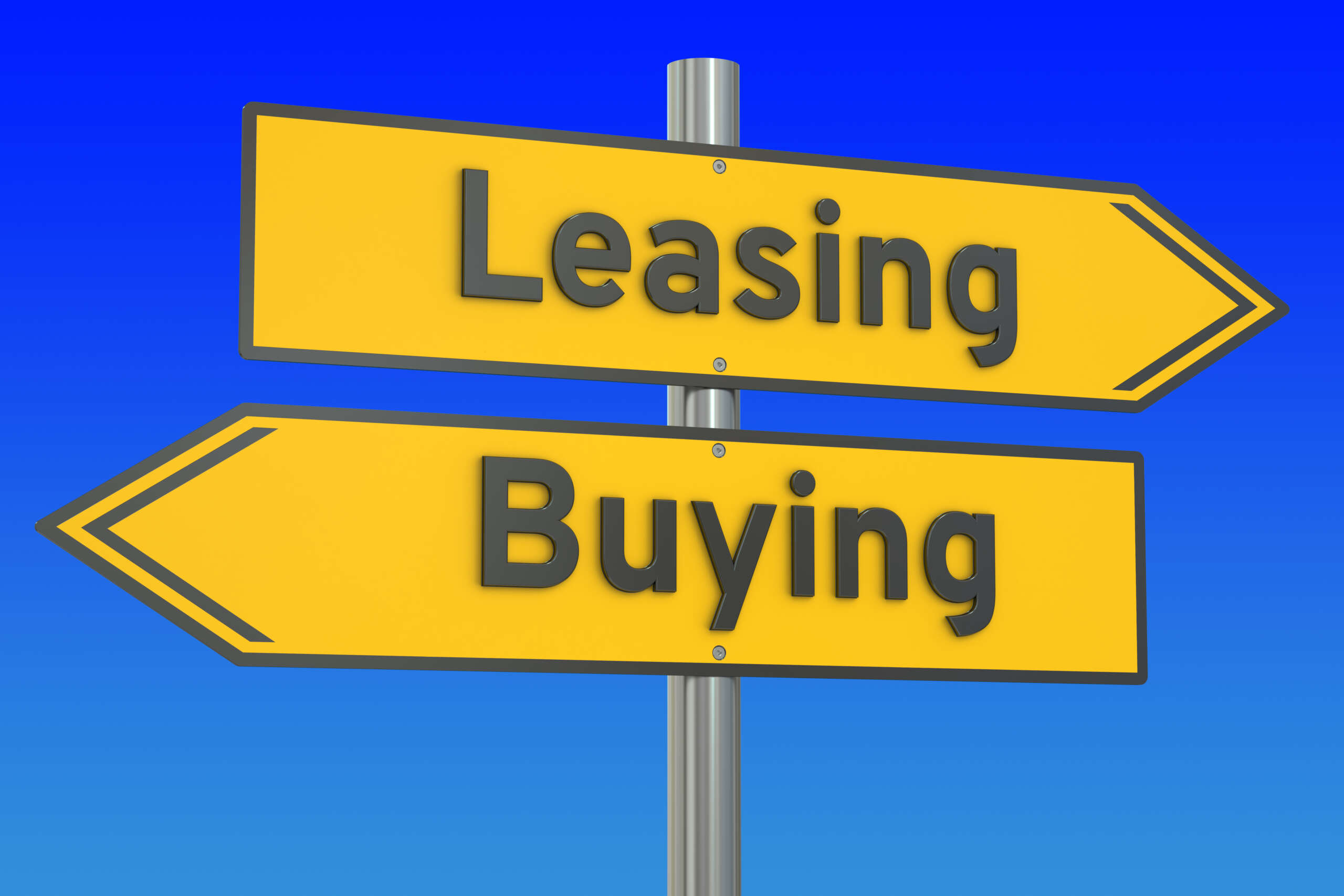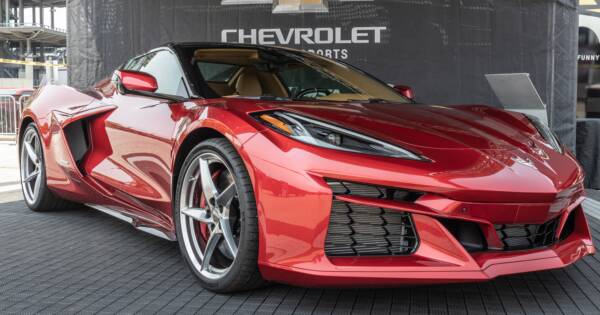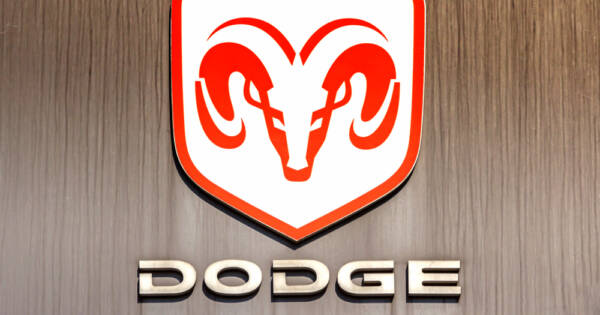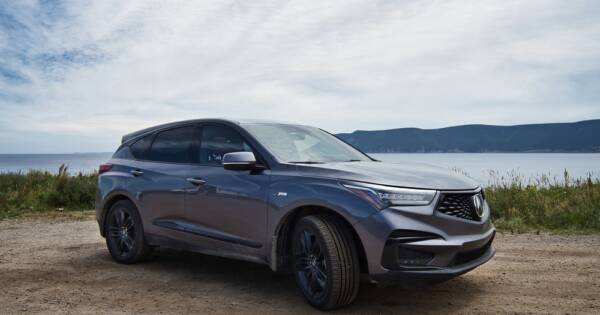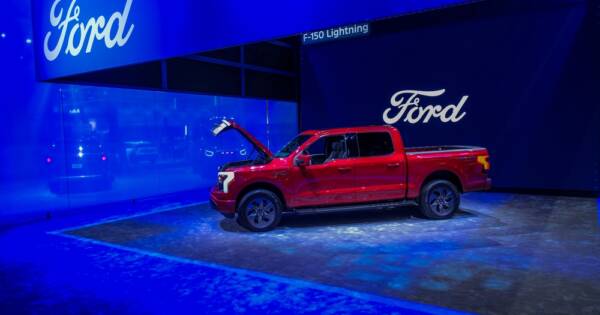The used car market is incredibly hot right now, making it a wise time to purchase a new car. But is it really a good move to buy a brand new car? What about leasing a new car? There are pros and cons to both leasing or buying a new car. Understanding various factors that influence price can help you decide whether buying or leasing a new car is the right choice for you.
Pros of Leasing a New Car
You Need Less Money Down
This is perhaps the most attractive thing about leasing a car. The expert advice for purchasing a new car is to put at least 20% down. It will reduce your monthly payments and help make sure your loan is never underwater. So if you’re strapped for cash, leasing might be the more attractive option.
Even better, you can often negotiate the amount you put down on your lease. If you choose to pay less, you can probably roll the difference into your monthly payments. Paying as little as possible at signing is a smart move, for reasons we’ll get into shortly.
You Can Regularly Drive The Newest Cars
Another advantage to leasing is that most leases span a maximum of three years. Once the lease is up, you are able to walk away and lease another car. This makes it much cheaper to regularly drive a brand new car. Since you never have to worry about trade-ins or vehicle depreciation, you simply swap your ride for something newer every two or three years.
Leasing is especially attractive for those who want to drive luxury cars, since they tend to depreciate in value quickly. This depreciation can make it difficult to get a good deal for them via a dealer trade-in. You can see where this is going — it’s going to be a chore to “trade up” your luxury vehicle every few years if you buy them outright. With leasing, all you need to worry about it what you’re putting down and the monthly lease amount.
You May Still Be Able To Buy Your Leased Car
The monthly payment of a lease is based on its residual value. This is the estimated value of the car after the lease period ends. If the residual value is set too low, you can sometimes score a great deal. For example, say the residual value for a lease deal on a 2019 Honda Accord was $22,000. In 2021, new cars were harder to find and used car prices shot up as a result. That $19,000 Accord may be a really good deal.
If you really loved driving your leased vehicle, almost every lease agreement has an “option to buy” clause included. So if the dollar figure makes sense, you can convert your lease into a full-on purchase. The good news, though, is that you are never obligated to buy the car when the lease ends. If the price is too high (or the market has shifted dramatically), you can just walk away. Just make sure you’re not in an open-end lease deal. These are typically not offered to regular car buyers but it’s best to check the fine print just in case.
Cons of Leasing
Mileage Limits Can Kill Road Trips
This is perhaps the biggest drawback of a lease: the mileage limit. It varies, but 12,000 miles per year is typically standard. You can exceed that, of course. Your lease won’t magically stop working at mile 12,001. However, you’ll pay dearly for going over the miles limit. Each additional mile costs mere cents, but they can add up quickly. Suddenly, you’re on the hook for hundreds (or thousands) of extra dollars at the end of your lease.
The good news is that you can buy extra miles up front, with the cost rolled into your monthly payment. It’s typically at a discount too. If you know that 12,000 miles per year isn’t going to be enough, negotiate for 15,000. No matter what your limit is, though, it’s never fun to be limited in how much you can use your vehicle. And while leasing is supposed to be the cheaper option compared to buying, it can certainly cost you much more if you blow through the agreed upon miles limit.
Your Down Payment Can Disappear
Well, kind of. You don’t really make a “down payment” on a leased vehicle, since you’re not actually buying it. The money you put down on a lease simply lowers your monthly payments. It’s kind of like an insurance policy, since the dealer expects you’ll take better care of a car that you’ve already spend a few thousand dollars to obtain.
The thing is, though, if your leased car is totaled or stolen, you may not get that money back. This is because the insurance company will pay the leasing company for the damages, not you. Even if you take perfect care of the car and return it after 24 or 36 months, you don’t get your money back or anything. So either way, your “down payment” is merely pre-paying a lump sum of your monthly lease payments. Nothing more, nothing less.
This creates a catch-22 when it comes to leasing a car. Do you put more money down to avoid paying a higher monthly payment? Or do you pay a higher monthly payment and put $0 down? If you’re going to put more money down, why not just buy a vehicle instead? Keep in mind that a $0 down lease often requires sterling credit.
You Can’t Modify Your Car
If you plan on giving your car back at the end of the lease, you better not change anything on it. The dealership will want the car back in perfect stock form. Your awesome body kit and supercharger are, needless to say, not stock. Nor are the bumper stickers, seat covers, or that shoddy amateur window tinting job. In short, leave your leased car alone.
This is a problem for anyone who loves to tinker with their vehicles. If you like to drive a performance car, with the intention of tuning or modifying it, stay away from leasing. At the very least, make sure you know exactly what is and isn’t allowed in your lease agreement. Tweaking the engine for better performance may be acceptable, but cosmetic add-ons probably aren’t. So don’t go buying that new spoiler from eBay just yet.
For many auto enthusiasts and gearheads, these limits are a huge deal breaker. Instead, they opt to buy their vehicles outright so that they can soup them up as they wish. On the other hand, if you have zero interest in modifying your car, then go ahead and explore leasing options.
Pros of Buying a New Car
It’s Literally Your Car
This one is pretty simple and straightforward. When you buy a new car, you own it. Okay, technically the bank owns it (most likely, assuming you’re financing it). Still, the bank won’t tell you how many miles to drive a year. The bank won’t tell you what mods you can install. All the bank cares about is if your monthly payment is on time.
Buying a new car means you don’t have to learn the terms of your lease contract. It’s your car and you can treat it and drive it how you want. For many drivers, that freedom alone is worth any extra costs.
You Might Be Able To Cash In
The used car market is crazy right now. Some models even cost more used than they do new! This is due to a number of reasons, including pandemic-related supply chain issues and the global shortage of microchips. Basically, the lack of available semiconductor chips means some new cars are shipping without certain features. Identical vehicles that have these features are fetching a pretty penny, even if they’re a year or two older.
This shortage won’t last forever, though. It’s anyone’s guess as to when it will end. That said, even if markup turns out to be short-lived, the underlying advantage is still the same. If you buy your new car outright, you can turn around and sell it at any time you like, to anyone you choose.
Wear and Tear
When you lease a car, you are responsible for paying for “wear and tear” at the end of a lease. If you buy a new car instead, you don’t have to worry about any of that. Your dog can take a bit out of the backseat. Your kids can stain the upholstery. You can throw tools in the back or truck bed.
This is also good news for those who live in crowded cities. Any dings or dents are your own problem. That is annoying, of course, but you get to fix them on your own time. Leasing a car doesn’t allow that kind of flexibility.
Cons of Buying a New Car
You Have to Pay More Upfront
Yes, some automakers offer great deals with “$0 down due at signing.” This is for those with the very best credit, though. For everyone else, the dealership will want you to put a good bit of cash down for your new car. If you can’t meet that number, you’ll have a higher monthly payment. You might need to borrow more upfront, pay a higher interest rate, or get locked into a longer loan. All of that results in a higher overall cost to buy the vehicle.
No matter what, trying to buy a new car without the required down payment will cost you. Leasing a car is much cheaper in terms of upfront costs. Anyone looking to buy more than a basic economy car will need to show the dealer the money.
You’re Paying Off a Depreciating Asset
There’s an old adage about cars: they lose half their value when you drive them off the lot. While the 50% rate isn’t quite accurate, the saying is still based of a truism. A car is a depreciating asset. It’s not an investment in any way. (Okay, some very rare collector’s cars may go up in value, but this article is about your daily driver, not your collection of rare classics.)
No matter how you slice it, buying a new car means spending a bunch of money on something that will never be worth as much as the day your bought it. It’s value only goes down with every mile driven and every week that passes.
Some SUVs, trucks, and Japanese economy cars tend to have good better resale values that competing vehicles. But do you really want to make a purchase based off of resale value? When buying a new car, that’s definitely a consideration that many make.
When the Warranties Expire, You’re on the Hook
Kia and Hyundai are known for their legendary 10-year, 100,000-mile warranties. However, many automakers are not so generous. If you buy a brand new car, you’ll probably own it long enough for the warranty to expire. When it does, any repair or maintenance costs are all yours.
This can really be dangerous for totally new cars — those with all-new engines and platforms. Nobody knows what kind of gremlins might exist in these new models. The automaker probably doesn’t either — the only way to find out is to drive them at length. If you buy a brand new model, you might end up being the guinea pig for the manufacturer when it comes to long-term issues.
